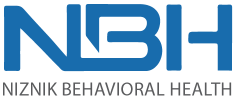Fetal Alcohol Spectrum Disorders Month: Know the Facts
Is Drinking During Pregnancy Okay?
There is some misinformation out there about how safe it is to drink while pregnant. In particular, there is information suggesting that there are specific types of alcohol that are safer than others. It has also been widely shared that limited amounts of alcohol are okay to consume while pregnant.
September is National Fetal Alcohol Spectrum Disorders Month which makes it a good time to dispel some of this misinformation.
The CDC is clear that drinking during pregnancy is quite risky. Consuming alcohol is not only unsafe for women that are pregnant. It’s also unsafe for women that are trying to conceive, according to the CDC.
This is because a baby consumes alcohol along with their mother. It is passed through the umbilical cord, no matter the amount. This is especially problematic because a baby is incapable of metabolizing alcohol in the same way an adult can. Therefore, complications arise.
The Effects of Drinking During Pregnancy
Namely, the child sustains some level of brain damage and may experience other delays. Those exposed to alcohol during pregnancy may go on to be diagnosed with fetal alcohol spectrum disorders (FASD).
Unfortunately, FASD isn’t rare. The National Institute of Health found that the prevalence was as high as 5% in some communities. That means that 1 in 20 children may suffer from FASD.
The exact symptoms and their severity vary according to the individual and the amount of alcohol consumed.
Symptoms range and are plentiful. There may be physical defects, impaired brain and central nervous system functioning, or behavioral problems. Here are just some of the symptoms:
- Delayed growth
- Deformities
- Hyperactivity
- Mood imbalances
- Problems in school
- Trouble reasoning
- Distractibility
- Difficulty socializing
- Organ damage
These symptoms are irreversible and can be diagnosed in childhood and adulthood. Unfortunately, these symptoms will likely plague an individual for life, though early intervention can go a long way toward limiting the impact of the symptoms.
The difficulty associated with diagnosing the disorder has seen it labeled a “hidden disability”. That means that individuals close to the family–including clinicians– are a great advantage for identifying the risky behavior that could lead to FASD. Further, family and friends may be the only individuals close enough to either witness or have knowledge of any drinking during pregnancy.
Considering the ramifications, it is advisable to avoid alcohol whether pregnant or trying to conceive. There is help available for those that are inclined toward sobriety and recovery. It can not only save you, but also your baby, from lifelong consequences.

